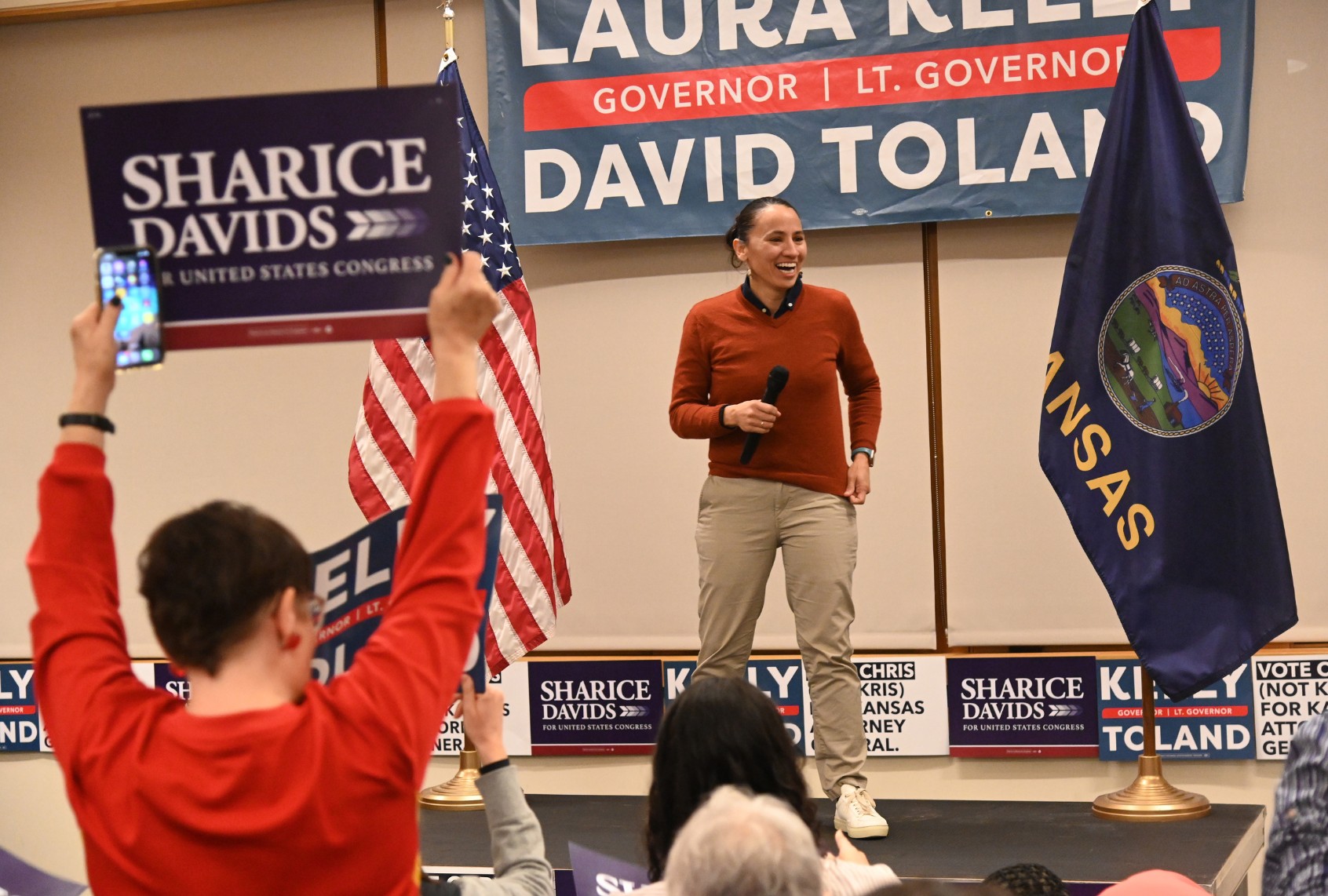In a striking political landscape marked by aggressive gerrymandering, Sharice Davids, the sole Democratic representative from Kansas, has successfully navigated the challenges posed by a Republican-drawn district map. Representing the state’s 3rd Congressional District, which covers diverse regions from the Kansas City metropolitan area to rural farmland, Davids has managed to secure her position against formidable odds.
The redistricting efforts in Kansas, spearheaded by Republican lawmakers, aimed to create a more conservative electorate by slicing through urban areas, including the ethnically diverse Wyandotte County. In 2022, the map changes were designed to disadvantage Davids, who is also a member of the Ho-Chunk Nation and openly identifies as gay. Despite these challenges, Davids has won reelection by significant margins, defeating her conservative opponents by as much as 12 points in the 2022 elections and again in 2024.
Grassroots Engagement and a Focused Message
Davids attributes her electoral success to a robust engagement strategy with voters. “When they gerrymandered the Kansas maps, I was — like a lot of folks around here — frustrated at the fact that they essentially decided who their voters are,” Davids stated in an interview. Her approach involved reaching out to voters, particularly in the newly added rural areas of her district, to ensure their voices were represented in Washington, D.C.
Her policy positions, which include strong advocacy for abortion rights, job creation in renewable energy sectors, and criminal justice reform, have resonated with her constituents. Davids noted, “The voters spoke loud and clear,” emphasizing her commitment to addressing the concerns of Kansans, especially regarding the implications of gerrymandering.
Challenges Ahead with Potential Redistricting
Despite her past victories, Davids faces new challenges as Republican leaders, including Ty Masterson, the Kansas Senate President, have signaled intentions to pursue another round of redistricting. Masterson stated that the aim is to enhance the Republican agenda. This move mirrors similar efforts seen in states like Texas and Missouri.
The prospect of mid-decade redistricting raises concerns for Davids, particularly in Johnson County, which has seen a substantial increase in Democratic voters, growing by approximately 53,000 over the past nine years. The potential changes could dilute her constituency and disrupt her support base. “People are pretty pissed about the idea of revisiting the idea of redistricting,” Davids remarked, reflecting widespread frustration among voters.
Political analysts, including Geoffrey Skelley from Decision Desk HQ, highlight that such gerrymandering tactics, termed “cracking,” aim to disperse opposition voters across multiple districts, thereby weakening their electoral strength. Skelley noted that while Kansas leans Republican, the suburbs have increasingly shifted toward Democratic preferences in recent years.
The implications of redistricting extend beyond state borders. According to polling data from RealClearPolitics, Democrats currently hold a slight edge over Republicans for the upcoming 2026 midterm elections, further motivating Republican efforts to secure their position through strategic map alterations.
Experts like Samuel Wang, founder of the Princeton Gerrymandering Project, emphasize the rarity of mid-decade redistricting, suggesting that such efforts could be viewed as desperate maneuvers by Republicans to maintain their influence. Wang’s research has characterized Kansas’ current districting as significantly advantageous to Republicans.
As Davids prepares for potential changes, she remains committed to her grassroots efforts and hopes to galvanize voter awareness regarding the implications of these political maneuvers. “The most important thing we can all be doing is making sure as many people as possible know that our state’s legislators are looking at doing Donald Trump’s bidding,” she stated, underscoring the urgency of mobilizing public sentiment against gerrymandering.
The ongoing political landscape in Kansas illustrates the complexities of electoral integrity and representation, as Davids continues to embody resilience in the face of systemic challenges.
